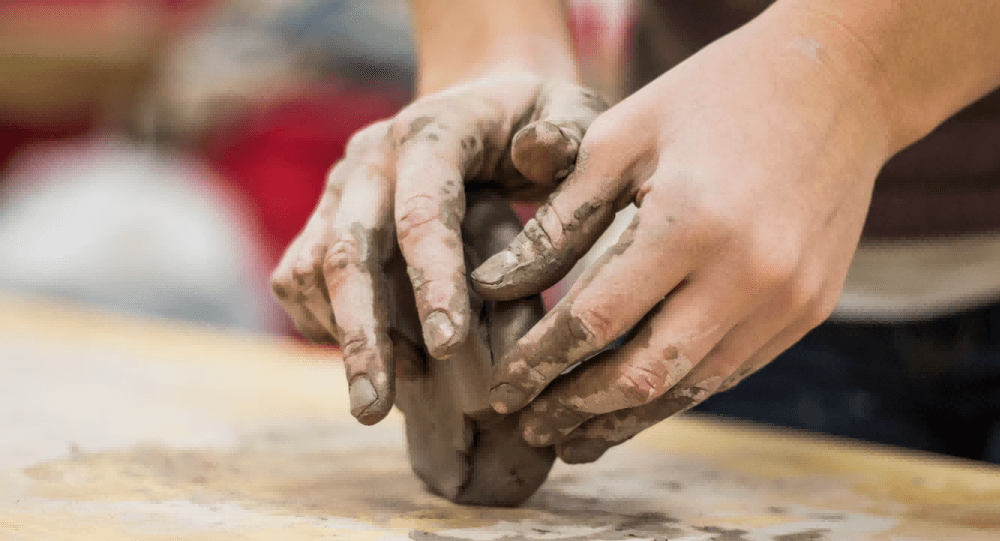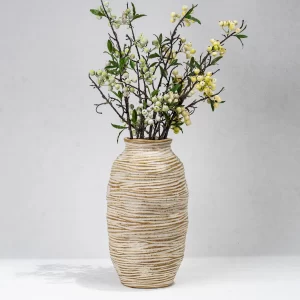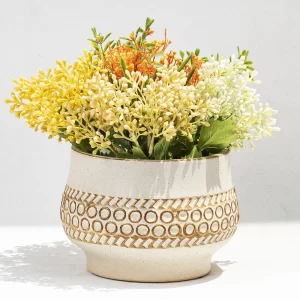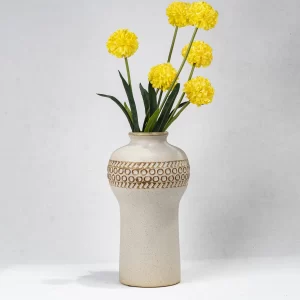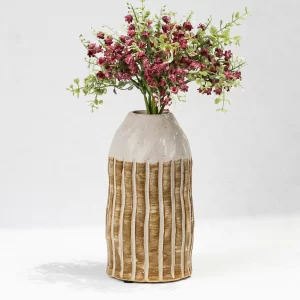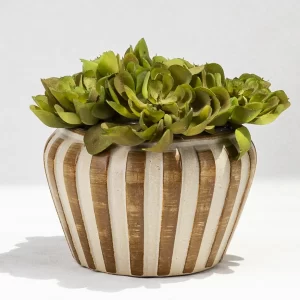Pottery is an enduring handicraft that is loved by people for its unique beauty and practicality. Whether in daily life or in the field of art collection, pottery occupies an irreplaceable position. As a professional pottery manufacturer, we will take you to a deeper understanding of the world of pottery, including the following four parts: starting with the definition of pottery, then the glaze layer, mud composition, and finally the production process.
What Is Pottery ?
The products of natural clay by molding, drying, and firing are called pottery. It is usually fired at a temperature of 900°C to 1200°C to give it sufficient hardness and durability. Compared with porcelain, pottery has a coarser texture generally with a lower sintering density, and tends to warm brown or red colors. Pottery can be used not only in the manufacture of practical items, such as tableware, vases, and ornaments, but also as an artistic medium full of culture and personality.
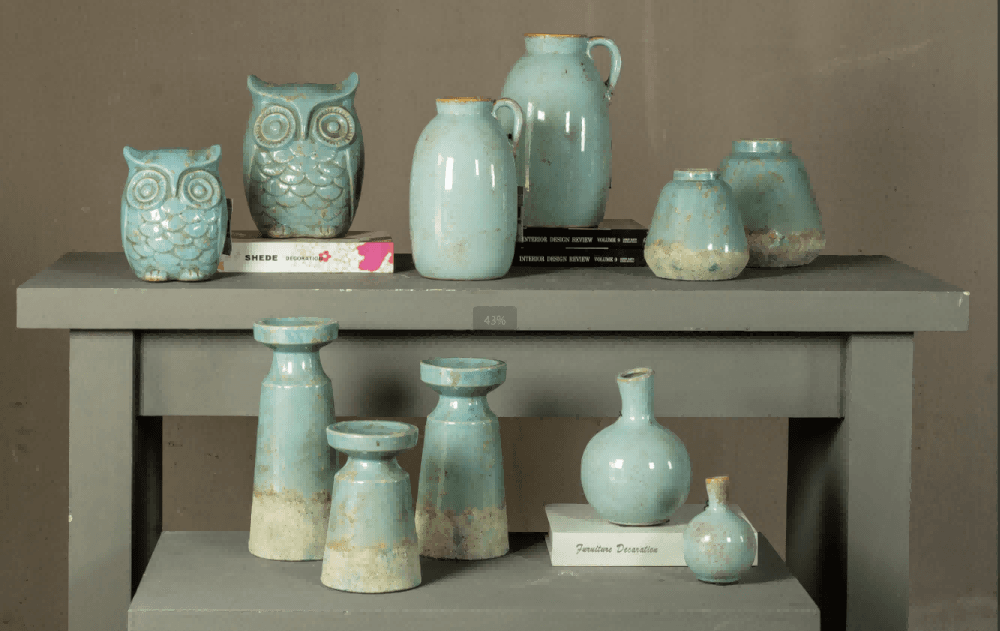
What Is a Slip In Pottery?
Clay slip is a common material used in pottery making, made from clay and water. Slip is used in a variety of processes, including molding, connecting parts, and coloring. Its composition and proportions are usually slightly adjusted according to different needs. Specific functions include:
Connection: In the process of pottery making, slip can be used as an adhesive to connect different clay parts together.
Coloring and decoration: Mineral pigments can be added and applied as decorative slip to the surface of pottery to enrich the visual effect.
Repair and leveling: It can fill uneven surfaces and increase the fineness of the pottery surface.
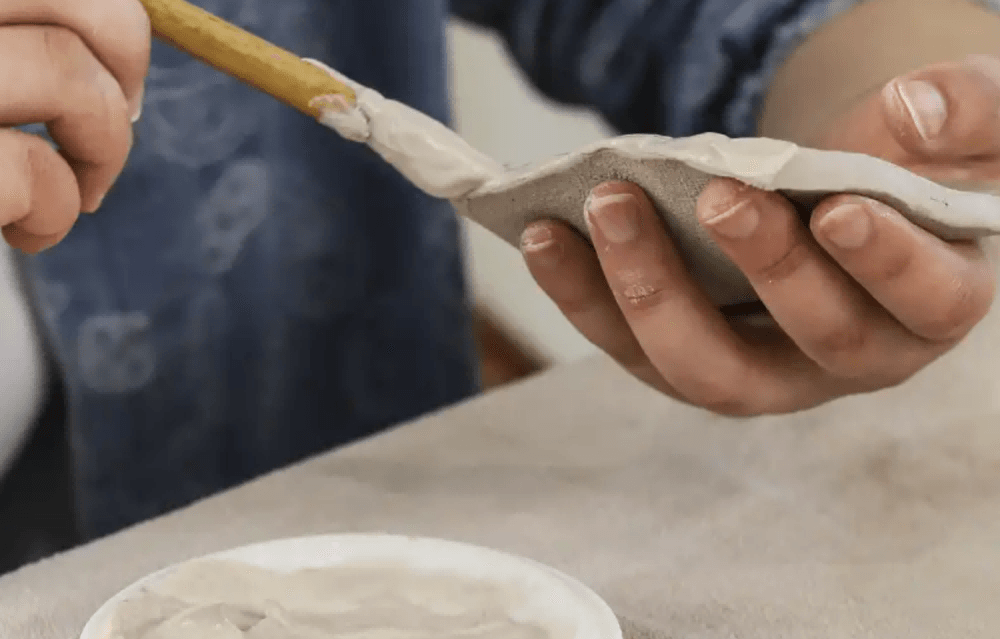
How Many Layers Of Glaze on Pottery?
Glaze is a protective and decorative layer on the surface of pottery. After high-temperature firing, it will vitrify, making the surface of pottery smooth and easy to clean, while enhancing its water resistance and durability. The number of glaze layers on pottery depends on the design and functional requirements:
Single-layer glaze: Single-layer glaze is usually applied to simple pottery. It is low-cost, easy to operate, and suitable for mass production.
Double-layer glaze or multi-layer glaze: If you want richer colors and textures, you can apply a second layer of glaze after the first layer of glaze dries. The superposition of different glaze layers can produce unique effects such as gradients and cracks. This is a double-layer glaze or multi-layer glaze.
Combination of transparent glaze and colored glaze: Some artistic pottery will first apply colored glaze and then cover it with a transparent glaze layer. The combination of transparent glaze and colored glaze can enhance the layering and glossiness of the color. However, such a multi-layer glaze process has high requirements for process and temperature control, but the visual effect of the finished product is particularly outstanding.
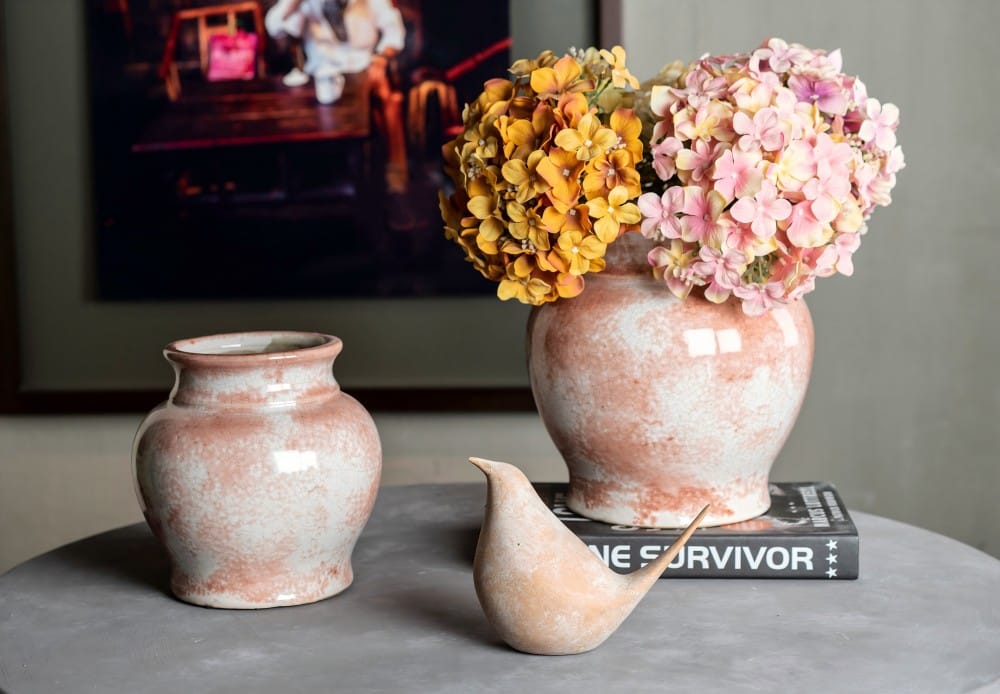
How To Get Started In Pottery?
Pottery making is a creative and technical process that usually includes the following steps:
Preparing clay: Choose the right type of clay (such as red clay, white clay), and make it soft and sticky after stirring and kneading.
Molding: You can use hand kneading, throwing, molds and other methods to shape the clay into the desired shape. Keep your hands moist during molding to avoid the clay from drying out and cracking.
Drying: The molded pottery needs to be dried naturally, usually for a few days, to avoid cracks caused by rapid evaporation of water.
Glazing: Dip the dried pottery into the glaze slurry, or use brushing, spraying and other methods to evenly apply the glaze on the surface. Choose a single or multi-layer glaze according to your needs.
Firing: The last step is high-temperature firing, and the temperature and time depend on the type of pottery and the glaze. After firing, the pottery will have a hard texture and a shiny surface.
